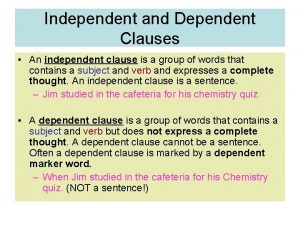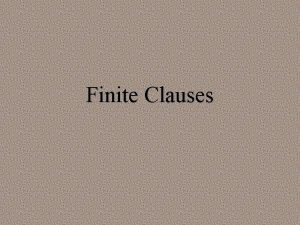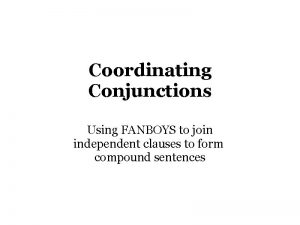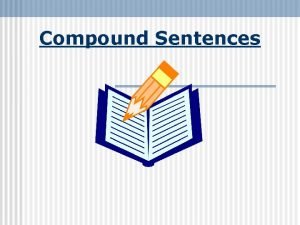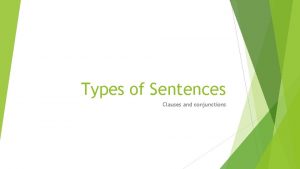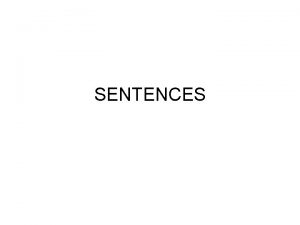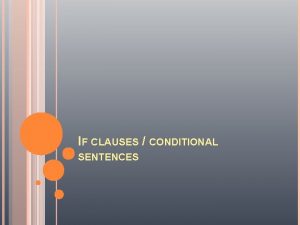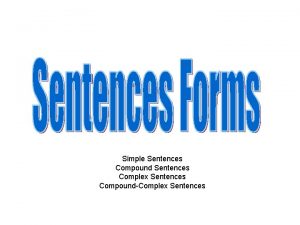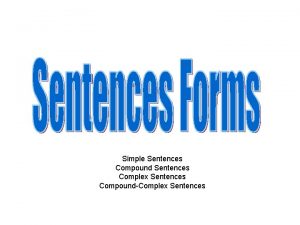Types of Sentences Clauses Independent clauses have a






- Slides: 6

Types of Sentences

Clauses • Independent clauses have a subject and a verb and can stand on its own as a sentence. EX→ I went to the store today. • Dependent clauses have a subject and verb but cannot stand on its own as a complete sentence. They start with a subordinate conjunction. EX→When I went to the store today, I bought chips and dip. • The bold and underlined part above is the dependent part. • “When” is a subordinate conjunction. Adding it to an independent clause turns it into a dependent clause, like the last example above.

Simple Sentences • Simple sentences have one independent clause. However, they could have more than one subject or more than one verb. —> EXAMPLES • I went to the store today. • We built a puzzle. Two subjects • Meg and Stu watched a play. Two verbs • The family ran and swam all summer.

Compound Sentences • Compound sentences have two independent clauses. You combine two independent clauses with either a FANBOYS (called a coordinating conjunction) or a semicolon (; ). A FANBOYS or a semicolon is like the glue keeping them together. For And Nor But Or Yet So —> Examples • Chris ran to school, but Macy walked. • I love pickles, yet I don’t like cucumbers. • Daily writing is fun; we do it everyday. • Hazel sleeps on the couch; it is her favorite spot. ** Notice that the independent clauses are related to each other in topic. Putting together two unrelated clauses together will make the compound sentence sound clunky.

Complex Sentences • Complex sentences have an independent clause and a dependent clause. A dependent clause is made by adding a subordinate conjunction to an independent clause. There are several subordinate conjunctions, but here are some of the most common: After As Before Because Even if Even though If Since Than That Though Whenever Wherever While Once Whether Until Unless

Complex Sentences (cont’d) • It does not matter what order you put the independent or dependent clause. However, if the dependent clause comes first, you put a comma after it to separate it from the independent clause. —> Examples • When I went to the store today, I bought chips and dip. • Before you leave, you can pick up a cookie. Or • I bought chips and dip when I went to the store today. • You can pick up a cookie before you leave.
